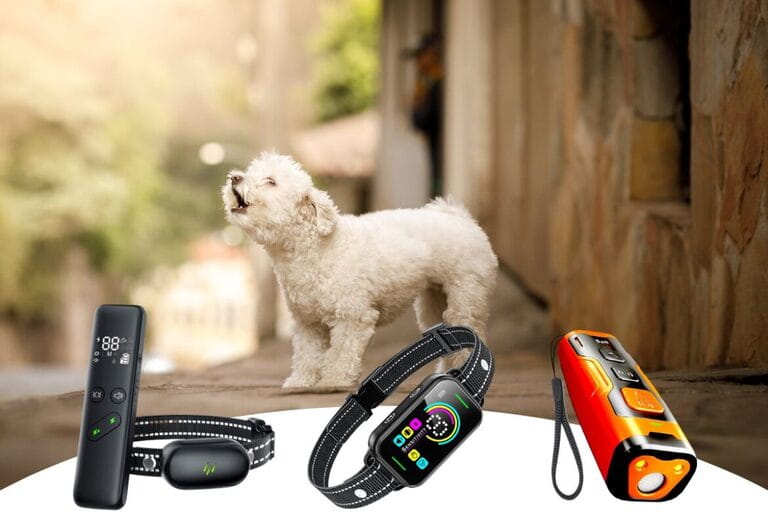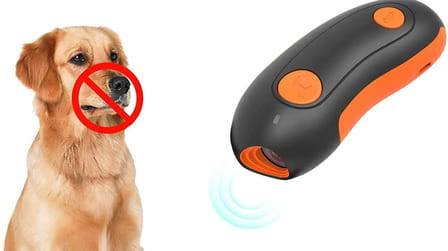Fellow dog enthusiasts, if you're reading this, you likely have concerns about the potential harm caused by bark control devices. As a friendly and knowledgeable voice in the world of dogs, I'm here to provide you with comprehensive information on the topic. So, let's dive deep and uncover the truth about whether bark control devices can hurt our beloved canine companions.
Understanding Bark Control Devices
Bark control devices are designed to address excessive barking in dogs. They come in various forms, such as ultrasonic devices, citronella spray collars, vibration collars, and electric shock collars. Each type of device operates differently, aiming to interrupt or discourage barking behavior.
Types of Bark Control Devices
- Ultrasonic devices: These emit high-frequency sounds that are unpleasant to dogs but generally inaudible to humans. The idea is to startle the dog and divert their attention away from barking.
- Citronella spray collars: These collars release a burst of citronella scent when triggered by barking. The strong scent is intended to interrupt the barking and discourage the dog from continuing.
- Vibration collars: These collars vibrate against the dog's neck, providing a gentle stimulus to redirect their attention and interrupt barking.
- Electric shock collars: These collars deliver a small electric stimulation, ranging from a mild sensation to a stronger jolt, as a deterrent for barking behavior. The intensity can typically be adjusted.

Addressing the Concerns
Now, let's address the main concern: Do these bark control devices hurt dogs? To answer this question, we need to carefully consider several factors.
Device Quality and Proper Usage
The quality of the device and how it is used are essential factors in determining its potential impact on a dog's well-being. It's crucial to select reputable brands and follow the manufacturer's instructions to ensure the safety and effectiveness of the device.
Cheaply made devices may not provide accurate stimuli or may malfunction, potentially leading to discomfort or harm. It's important to invest in high-quality devices that are designed with the well-being of dogs in mind.
Proper usage of bark control devices is also crucial. It's essential to follow the recommended guidelines provided by the manufacturer. This includes fitting the device correctly, using appropriate settings, and employing the device in conjunction with positive training techniques.

Electric Shock Collars and Ethical Considerations
Electric shock collars have been a topic of debate due to their potential for causing discomfort or pain to dogs. While some argue that these collars can be effective when used properly, others emphasize the ethical concerns surrounding their use. It is important to note that several countries and jurisdictions have restricted or even banned the use of electric shock collars due to animal welfare concerns.
If you're considering using an electric shock collar, it is crucial to seek guidance from a qualified professional who can provide you with the necessary knowledge and techniques to use it responsibly. The welfare of your dog should always be the top priority, and alternative training methods that focus on positive reinforcement should be considered first.

Alternative Methods and Positive Reinforcement
It's worth mentioning that there are alternative methods available for addressing excessive barking, which focus on positive reinforcement and training. Positive reinforcement training techniques involve rewarding desired behaviors while redirecting or ignoring undesired behaviors. These methods emphasize building a strong bond between you and your dog, promoting trust, and encouraging the desired behavior through positive associations.
By focusing on positive reinforcement and understanding the underlying causes of excessive barking, you can address the issue in a more humane and effective manner. Professional dog trainers or behaviorists can provide valuable guidance and tailored solutions to help you manage your dog's barking behavior without relying on bark control devices.

Individual Sensitivity and Behavioral Factors
Every dog is unique, and their response to bark control devices may vary. Some dogs may be more sensitive to certain stimuli, while others may be less affected. Factors such as breed, age, temperament, and prior training experiences can influence a dog's reaction to these devices.
It's crucial to consider your dog's individual sensitivities and behavioral factors before using any bark control device. For example, highly anxious or fearful dogs may be more negatively affected by certain stimuli, leading to increased stress or fear. It's important to take these factors into account and choose the most appropriate and humane approach for your dog's well-being.
The Importance of Professional Guidance
When it comes to addressing excessive barking and determining the suitability of bark control devices, consulting with a professional dog trainer or veterinarian is invaluable. These experts can provide personalized advice based on your dog's specific needs and help you make informed decisions.
A professional will evaluate your dog's behavior, assess the root causes of excessive barking, and recommend a training plan that aligns with your dog's well-being and your ethical standards. They can guide you in selecting the most appropriate training methods and tools, including bark control devices, if necessary.

Final Thoughts
In conclusion, the impact of bark control devices on dogs depends on various factors, including device quality, proper usage, and the individual dog's sensitivities. While some devices, such as ultrasonic and citronella spray collars, are generally considered safe and humane, electric shock collars require cautious consideration due to potential discomfort or harm.
It's important to prioritize the well-being and safety of our furry friends when considering the use of bark control devices. Exploring alternative methods that focus on positive reinforcement and understanding the underlying causes of excessive barking can lead to more effective and compassionate solutions.
Remember, consultation with a professional dog trainer or veterinarian is crucial in determining the most suitable approach for your dog's specific needs. By focusing on positive training techniques and building a strong bond with your dog, you can address excessive barking in a way that promotes their well-being and strengthens your relationship.
So, let's continue to be responsible and compassionate dog owners, prioritizing the welfare of our furry companions as we strive for harmonious living. Together, we can create a loving and respectful environment for both humans and our four-legged friends!













